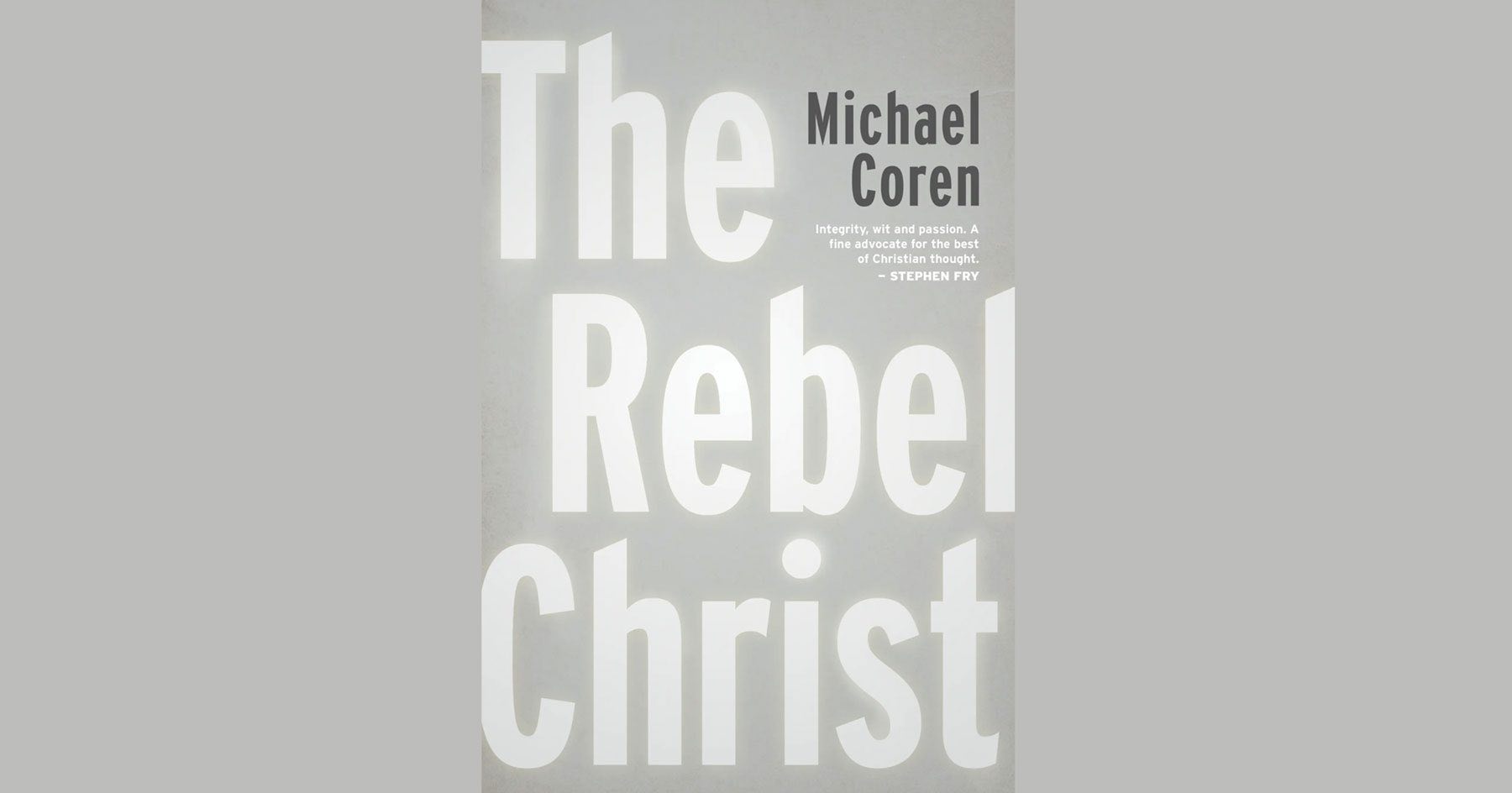Book Review: The Rebel Christ by Michael Coren. Toronto, Dundurn Press, 2021.
The Rebel Christ is the latest book from long-time writer and broadcaster Michael Coren, who was ordained a priest in the Anglican church in October 2021. As Coren outlines in the introduction to the book, up until 2013, he was an orthodox Roman Catholic who openly opposed reproductive rights for women and equal marriage. However, some years ago he began to question his stance on these issues and ultimately, as he writes in The Rebel Christ, “I changed.”
In the introduction, Coren poses the question that forms the starting point for his book: “Why is it that the purest, most supremely liberating philosophy and theology in all of history is now seen by so many people around the world as an intolerant, legalistic, and even irrelevant religion embraced only by the gullible, the foolish, and the judgmental?” After all, Coren points out, “Christ… says not a word about… abortion, homosexuality, euthanasia, pornography, or the so-called traditional family, but demands justice, forgiveness, equality, care for the poor and for the marginalized and for strangers, and compassion even for enemies…”
In the next chapters, Coren tackles the ever-increasing alignment of Christianity and right-wing politics in North America. He then goes on to argue that Christianity and Christ’s message are, at their core, socialistic; before looking at the biblical justifications, or lack thereof, for homophobia and the pro-life movement. Throughout, he refers to Jesus as “the rebel Christ” and though Coren doesn’t elaborate on this moniker, his message is clear: Jesus was a revolutionary and his message of love is still just as radical today as it was when it was delivered two thousand years ago, and just as urgent.
Coren asks, who was Jesus? He was “a gentle rabbi” who sang a “grand, sweeping poem of love, peace, justice, grace, forgiveness, hope, equality, revolution, understanding, and change.” Values that are, Coren argues, at odds with the version of Christianity proclaimed by the Christian right in North America and the politicians, such as Donald Trump, that they endorse. This version of Christianity has coalesced around the key issues of religious freedom, gun rights, resisting LGBTQ rights and objection to abortion.
An exclusive focus on individual rights stands in opposition to Jesus’s emphasis on compassion and the collective. Coren quotes numerous sections of the Bible that showcase this: “…go, sell what you own, and give the money to the poor, and you will have treasure in heaven;” “…just as you did it to one of the least of these who are members of my family, you did it to me;” “For this is the message you have heard from the beginning, that we should love one another.” And so on and so forth. Coren argues that these passages and numerous others like them are a call for economic justice and not just individual charity.
Coren also quotes the story of Jesus and the woman taken in adultery. It is a story that conveys not only the importance of not judging others, but the need to embrace those who are marginalized: “the refugee, the asylum seeker, the trans person, the street kid, the drug user, the sex worker, the slum dweller…” Yet conservatives are anti-immigration and strong supporters of the military and wars that create asylum seekers, and take a firm stance on “law and order.”
However, Coren isn’t calling for Christians to align themselves with one political party or the other, as he points out, William Wilberforce was a member of the British Conservative Party and Mr. Rogers was a Republican (an odd pair to mention in conjunction with one another, but both, in their own way, promoted justice and equality). What he is arguing for is “the blistering calls for change and justice that permeate the Jesus story” and the need to follow that story “with humility, always peppering our confidence in the truth with a commitment to empathy and forgiveness.”
Coren then spends two lengthy chapters on LGBTQ rights and abortion and examines the Bible passages often used to support a homophobic and pro-life stance. As Coren points out, there are “a mere five or six mentions of what can loosely be described as homosexuality in the entire Bible… whereas more than 10 percent is devoted to issues of economic inequality, exploitation, and injustice…” Yet, it is seen as a central cause for many conservative Christians.
Coren’s exegesis of those five or six mentions, and of what the Bible has to say about abortion, is lively and engaging — as is the entire book — but one question in particular that Coren poses has stayed in my mind. The question is posed in a section of the book about slavery: “When we read the Gospels, when we study the life, character, and teachings of Jesus, can we envisage someone who would have tolerated slavery, and who would remain silent in the face of racism and human degradation?” Coren answers his own question: “Everything we know about him would make that impossible.” We can unpick the Bible all we want, but the central message is there and clear to see in the life and words of the rebel Christ: love and compassion for “the least of these;” justice and equality for all.




